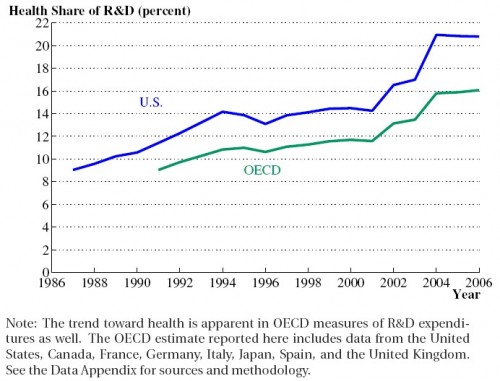Charles Jones poses some fascinating questions in his latest NBER paper. Among them are these:
Consider what might be called a “Russian roulette” theory of economic growth. Suppose the overwhelming majority of new ideas are beneficial and lead to growth in consumption. However, there is a tiny chance that a new idea will be particularly dangerous and cause massive loss of life. Do discovery and economic growth continue forever in such a framework, or should society eventually decide that consumption is high enough and stop playing the game of Russian roulette? How is this conclusion affected if researchers can also develop life-saving technologies?
The answers to these questions turn out to depend crucially on the shape of preferences. For a large class of conventional specifications, including log utility, safety eventually trumps economic growth. The optimal rate of growthmay be substantially lower than what is feasible, in some cases falling all the way to zero.
Later in the paper he illustrates how the share of US and OECD research and development spending on health has grown over time.
Pouring more resources into health is rational if additional life and health are valued more than other consumption. This is the intuition behind the view that health is a luxury good. We are certainly behaving as if it is just that. Many of us talk as if it is not. What do we believe, our behavior or our rhetoric?



